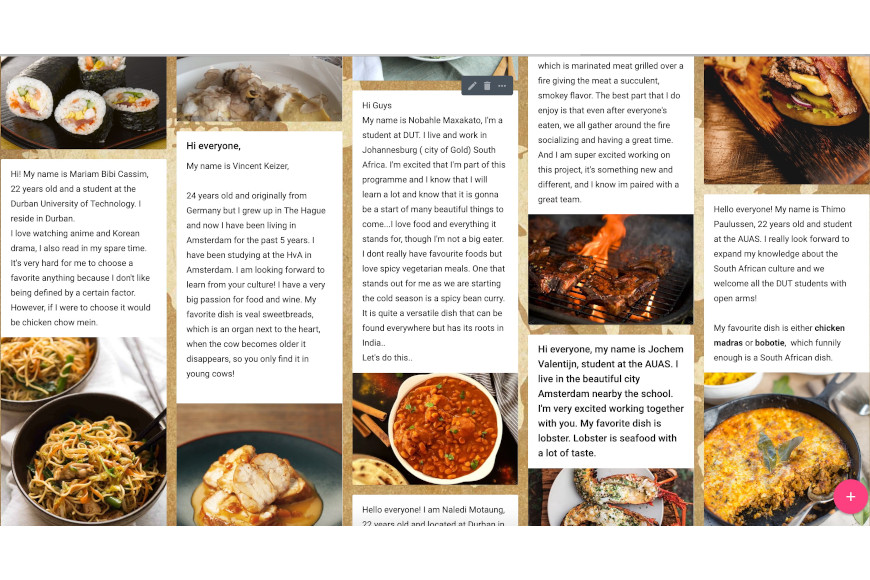Durban University of Technology (DUT) inspiring academics like Ashika Naicker (a senior lecturer in the Department of Food and Nutrition, Faculty of Applied Sciences), is passionate about promoting excellence, especially in Collaborative Online International Learning (COIL).
She got involved in COIL in 2018 when she was given the opportunity to participate in the State University of New York (SUNY) collaborative online training course through DUT’s International Office. COIL was founded in 2006 by the State University of New York Professor Jon Rubin, as a model for fostering cross-cultural student competence through the development of multicultural learning environments that link University or college classes in different countries online.
Naicker’s colleague, Evonne Singh and her were part of in-depth training where they both secured COIL partnerships and successfully COILed in 2019.
“Currently in 2020, I am part of the first cohort of the iKUDU project (an EU-funded capacity building in Higher Education project) to COIL and from this spills over my experience to future COILERs in our DUT community,” she said proudly.
For Naicker, COIL fosters meaningful exchanges between academics and students with peers in geographically distant locations and from different linguacultural backgrounds. She said that internationalisation at home as in the case of COIL, is regarded as the most cost-effective method of internationalisation targeting all students. “COIL provides additional learning experiences where students interact, collaborate, and take ownership of their own learning extending opportunities for cross-cultural and transnational learning bringing freshness into modules,” she said.
Naicker also recently shared her COIL presentation online with the DUT community, titled: A Comparison of Coil Experiences: Embracing inclusivity, which is a comparative overview of the structure and methodology used in the design and execution of two Coil experiences; one same discipline with on-campus support and the other cross-discipline during the new normal.
Speaking more on the COIL projects and how they were conceptualised, Naicker said that the 2019 COIL course was the same discipline course with on-campus support. “BTech Food and Nutrition Consumer Science and The Hague University of Applied Science, BSc Nutrition and Dietetics students engaged in the COIL course titled, Nutritional habits, food patterns and national recommendations. The 2020 COIL course was a cross discipline course during the new normal. BTech Food and Nutrition Consumer Sciences and The Amsterdam University of Applied Science, Bachelor in Commerce (Marketing) students engaged in the COIL course titled, Dietary recommendations for young professionals; Healthy eating and the impact on the environment. DUT students shared their expertise on national food guidelines and food trends whilst the Amsterdam students shared their marketing expertise in creating a tool to disseminate this information to young South African and Dutch professionals. What was new to both sets of students was the use of the electronic mind map to systematically document the data and the food carbon footprint calculator,” she said.
She said that in 2019, she had 53 DUT students and 28 Dutch students and in 2020, she had 14 DUT students to 36 Dutch students.
Naicker also explained more on how she managed to achieve implementation during the COVID-19, saying that her previous experience of COIL was with on-campus support. She said that this project was originally planned with on-campus support, starting in mid-May 2020 and was scheduled for five weeks. Given the COVID-19 pandemic, her COIL partner and her decided to extend week one into two weeks and start with the use of low tech modes of communication until DUT students received data. “We communicated over WhatsApp and I uploaded a narrated PowerPoint on Moodle to introduce the COIL project to our students. Before the start of the course, I did a survey to determine device access and connectivity among my students to ensure that we don’t leave any student behind. Once students received data in June, we did weekly Zoom calls to guide students through the steps of the project and the deliverables. We both had six groups of students to mentor over this period,” she said.
Naicker further stressed that it was a much needed human engagement during a time of isolation for both her and all the students. “We found it refreshing to be in class every Wednesday even in the online space,” she said.
She said her goals for the future, in terms of your project, is to further enhance the course design and move towards COIL cross discipline partnerships in Africa and other developing countries.
Pictured: DUT and Dutch COIL students interact online.
Waheeda Peters


